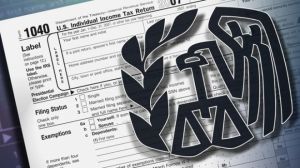- ABOUT US
- TAX SERVICES
- RESOURCES
- CAREERS
- (888) APRIL-15
- BOOK NOW
- CLIENT LOGIN
- FIND A TAX OFFICE
- (888) APRIL-15
- BOOK NOW
- PRICING & PROMOTIONS
- TAX SERVICES
- ABOUT US
- RESOURCES
- CAREERS
- CLIENT LOGIN
What NOT to Do on Your Taxes

Filing taxes is a painstaking process for almost everyone and every year, without fail, many returns full of mistakes are sent in to the IRS. In fact, mistakes are extremely common on tax returns, with an error rate of 50 percent; on self-prepared returns, according to the Government Accountability Office. There is a near-infinite number of things that can be done wrong on tax returns, from simple computational errors to missing out on deductions. Knowing which mistakes people commonly make is a good place to start when trying to avoid making them yourself. To that end, here’s what not to do on your taxes.
Include Undocumented Charitable Contributions
Though many charitable contributions are deductible, not every donation qualifies, and those that do must be meticulously documented. Every donation requires an accurate record, complete with confirmation receipts of the donation amount from the recipient at a qualified charity. Many people now donate money to crowdfunding campaigns, such as those hosted through Kickstarter, but many of these, because donors receive goods or services in return, don’t qualify as charitable contributions.
Taking a Write-Off for College You Don’t Qualify For
There are currently two write-offs available for college education: a $4,000 tuition and fees deduction and the $2,500 American Opportunity Tax Credit. Most people take the tuition and fees deduction because it seems like more money, but because the AOTC gives a dollar-for-dollar reduction, as opposed to lowering the income subject to tax, it can often be a better deal. It’s worth crunching some numbers to figure out which is the better option for you each time you file.
Claiming State Refunds as Income
Many people make the mistake of claiming their state tax refunds as income on federal tax returns. The only time a state tax refund should be declared is if the filer does not receive a tax benefit from deducting the taxes. Taking a standard deduction as opposed to itemizing means the filer doesn’t need to show state tax refunds as income.
Confusing Real Estate Taxes
Confusion regarding real estate and other property is one of the biggest sources of tax mistakes. People often take the wrong deductions, on everything from home offices to mortgage interest payments. New homeowners should be particularly careful and make sure to check which taxes they paid during closing to ensure they apply for the accurate deductions on their returns.
Forgetting IRA Savings
Throughout the year many people make regular IRA contributions, but they often forget to report them when filing their tax returns. Many of these IRA contributions qualify individuals for tax breaks. Furthermore, reporting all contributions is mandatory and even nondeductible contributions should be reported in order to avoid paying for them during retirement.
Incorrectly Reporting Foreign Investments
Though foreign investments are only applicable to a relatively small percentage of the tax base, they are amongst the more costly areas to make mistakes. Failing to accurately report foreign bank or financial accounts unintentionally carries a penalty of $10,000 per violation. For willful violations, the fine is $100,000 or 50 percent of the balance of the unreported account at the time of violation, for each violation, if the IRS catches it in an audit. That’s a very expensive mistake!
Changing Jobs and Withholding Too Much/Too Little
Those who switch jobs during the middle of the year and have combined earnings of greater than $117,000 should make sure they are not having extra money withheld. The maximum withholding rate is 6.2% for the first $117,000 of income, but both employers may withhold this amount if the employee made less than that sum at each individual company, meaning the filer would pay too much. It might make for a nice, big tax return, but it also means you’re overpaying on your taxes, and no one wants that. On the flip-side, if you switch jobs or get promoted and withhold too little, you could be surprised you owe taxes come April 15th when you were expecting a refund.
Overpaying on Investments Sold
Making mistakes on investments sold is frequent as it requires many calculations and meticulous record keeping of stock splits, reinvested dividends, capital gains distributions, and sales commissions. There are several online tools available to help investors make accurate calculations of shares bought. Make sure to keep clear records of all your investments.
These are just a few of the things you absolutely shouldn’t do on your taxes. While it’s by no means an exhaustive list, these mistakes are some of the most frequent—and also some of the easiest to avoid. If you’re concerned that you’ve made mistakes (or will make mistakes) on your taxes, you can always contact an R&G Brenner tax professional for assistance.





